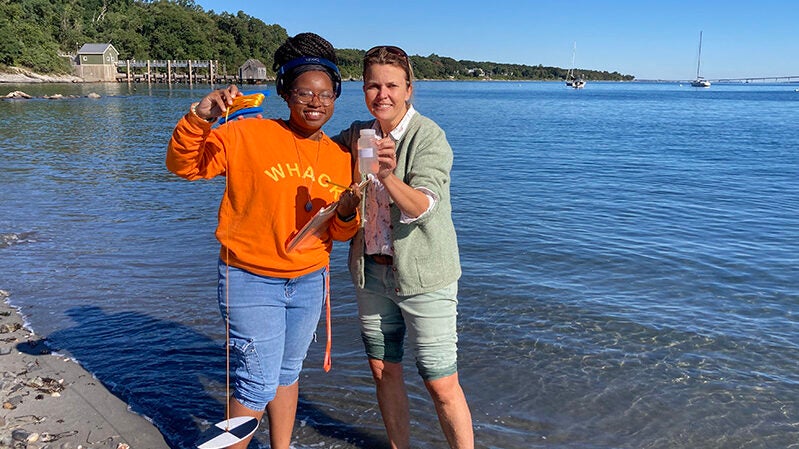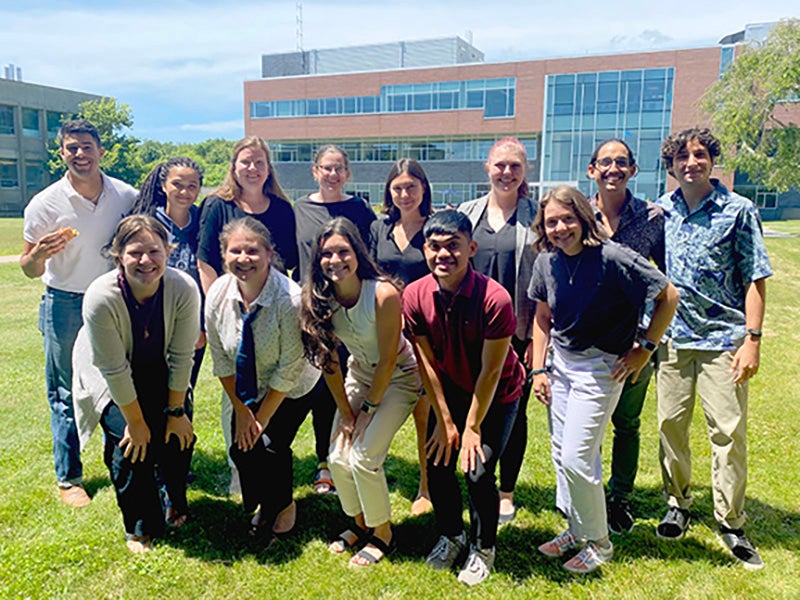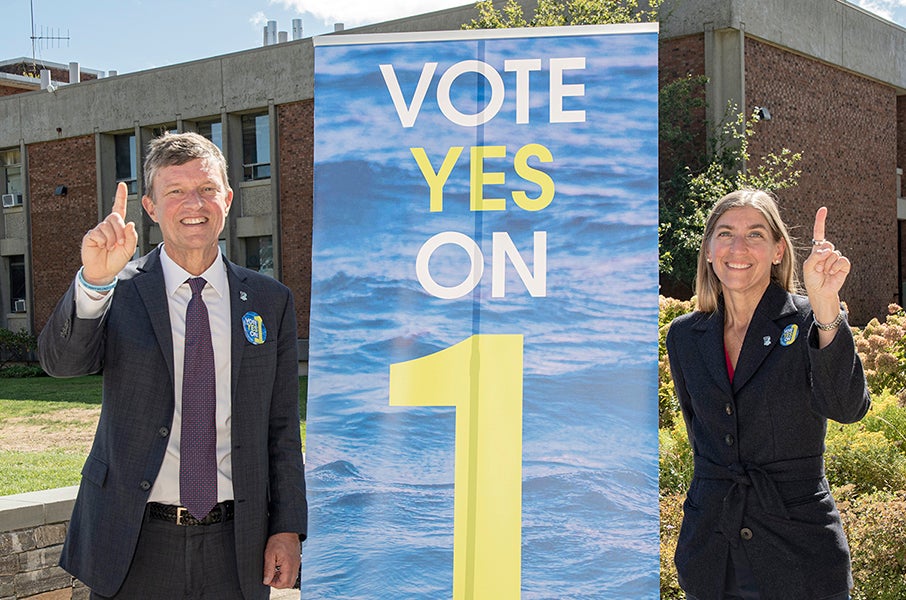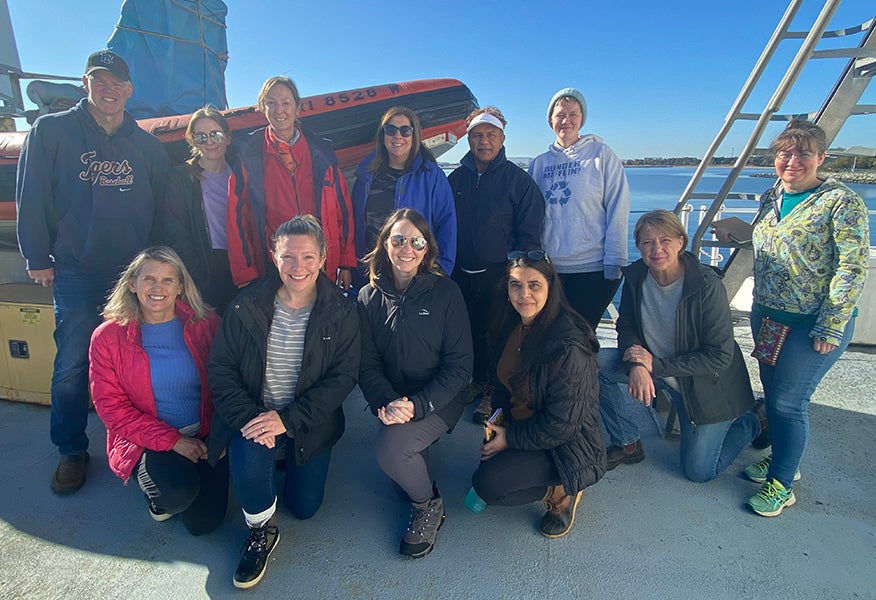Aboard GSO, Fall 2022

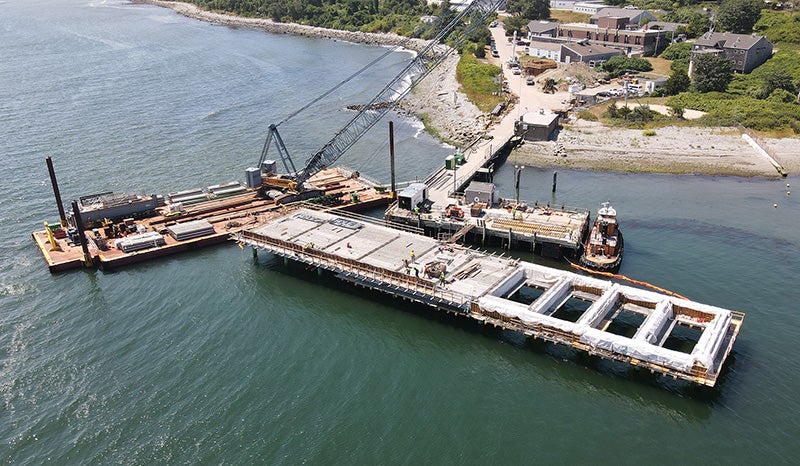
2022
![]()
Students are recognized at the annual GSO Shirting Ceremony, a time-honored tradition in celebration of GSO’s graduates. The school awards 27 degrees—12 Masters of Oceanography, four Masters of Science, four “Blue Master of Business Administration” and seven Doctors of Philosophy.
![]()
In recognition of World Ocean Day, GSO students, faculty and administrators set up and staff an exhibit at Roger Williams Park Zoo to share their ocean knowledge with visitors.
The miniboat Square Mile—a hands-on science project built by students in Central Falls, R.I., and launched from R/V Endeavor in October, 2021—is recovered in the Atlantic, near the Azores. Square Mile was at sea for 248 days and traveled more than 6,800 nautical miles.
The 2022 Summer Undergraduate Research Fellowships in Oceanography (SURFO) students arrive to conduct coastal- and ocean-research projects.
Coastal Resources Center and its partners are awarded a $15 million grant to address the social and ecological drivers of illegal, unreported and unregulated fishing in the Pacific Islands region. The five-year cooperative agreement, awarded by the U.S. Agency for International Development, will support work with local partners across six island countries: the Federated States of Micronesia, Republic of the Marshall Islands, Palau, Papua New Guinea, Solomon Islands and Vanuatu.
![]()
Exploration Vessel Nautilus and scientists with the OECI explore Johnston Atoll. Located in the central Pacific between the Hawaiian Islands, the Line Islands and Kiribati, this atoll is one of the most isolated in the world. Remotely operated vehicles dive along ridge features that are common within the Johnston Atoll Unit of the Pacific Remote Island Marine National Monument.
![]()
On successive Mondays, a lecture series is delivered at South Ferry Church. Topics include “Smart Growth,” “Global Security” and “Climate Change.” Speakers are the executive director of Grow Smart Rhode Island, the professor of national security affairs at the U.S. Naval War College and GSO Dean, Paula Bontempi.
![]()
Rhody Shuttle supplements regular bus service by RIPTA to provide URI students with an “all day, every day” travel option between the Kingston and Narragansett Bay Campuses.
“Science Saturday” hosts thousands of guests (e.g. young families, curious undergrads…) to engage with students, faculty and staff and to learn about ocean science.
URI President Parlange and GSO Dean Bontempi helped kickoff the “Yes on 1” bond campaign. Passage of Question 1, a borrowing authorization, will help fund Narragansett Bay Campus renewal projects.
![]()
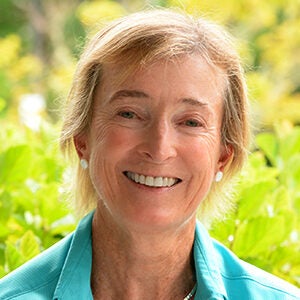 The Charles and Marie Fish Lecture features Jennifer Francis, Ph.D., of the Woodwell Climate Research Center. Her talk “Arctic Meltdown: Why It Matters to All of Us,” reviews recent research into the momentous changes occurring in the rapidly melting and warming Arctic.
The Charles and Marie Fish Lecture features Jennifer Francis, Ph.D., of the Woodwell Climate Research Center. Her talk “Arctic Meltdown: Why It Matters to All of Us,” reviews recent research into the momentous changes occurring in the rapidly melting and warming Arctic.
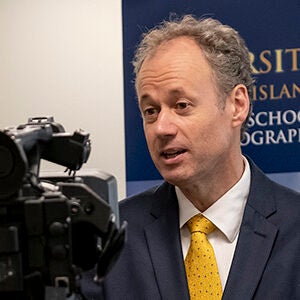 URI leaders, state officials and scientists at R.I.’s Department of Environmental Management announce a five-year grant renewal for the STEEP (Sources, Transport, Exposure and Effects of Per- and polyfluorinated alkyl Contaminants) program. The $8.1 million grant from the National Institute of Environmental Health Sciences extends the work of chief researcher and GSO Professor Rainer Lohmann and his team.
URI leaders, state officials and scientists at R.I.’s Department of Environmental Management announce a five-year grant renewal for the STEEP (Sources, Transport, Exposure and Effects of Per- and polyfluorinated alkyl Contaminants) program. The $8.1 million grant from the National Institute of Environmental Health Sciences extends the work of chief researcher and GSO Professor Rainer Lohmann and his team.
“Renewed funding of this essential program ensures that we can continue to inform policies that remove PFAS [Per- and polyfluorinated alkyl Contaminants] from our lives while analyzing the potential harm of new chemicals before they are released into the environment,” said URI President Marc Parlange.
R/V Endeavor departs on EN693, the annual R.I. Teachers at Sea (RITAS) cruise. Along with Associate Dean David Smith as the chief scientist, 12 educators from across R.I. were onboard for the weekend cruise. While at sea, they participated as part of the science team to learn about oceanography; conducting CTD casts, plankton tows and using the multi-corer.

